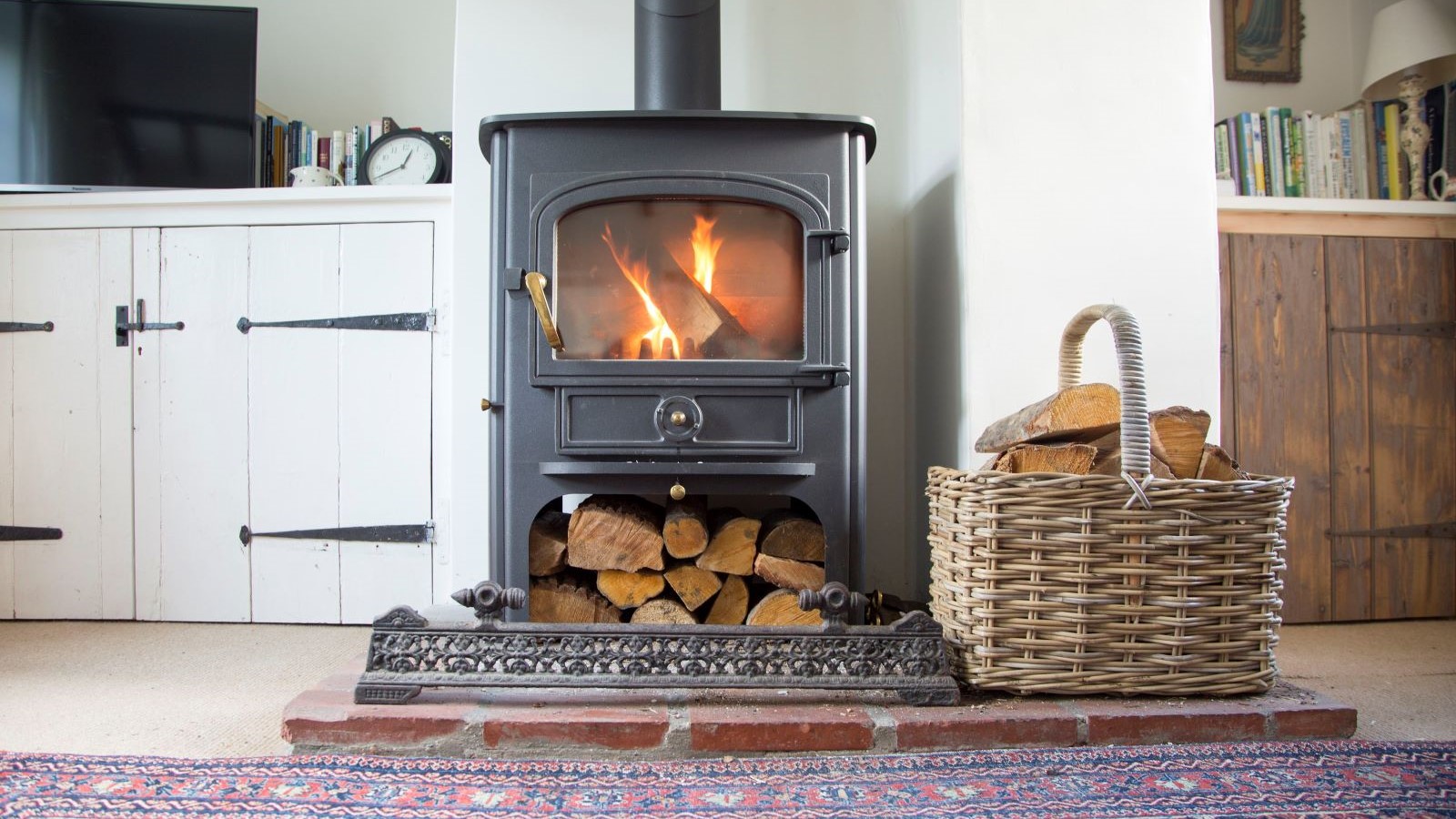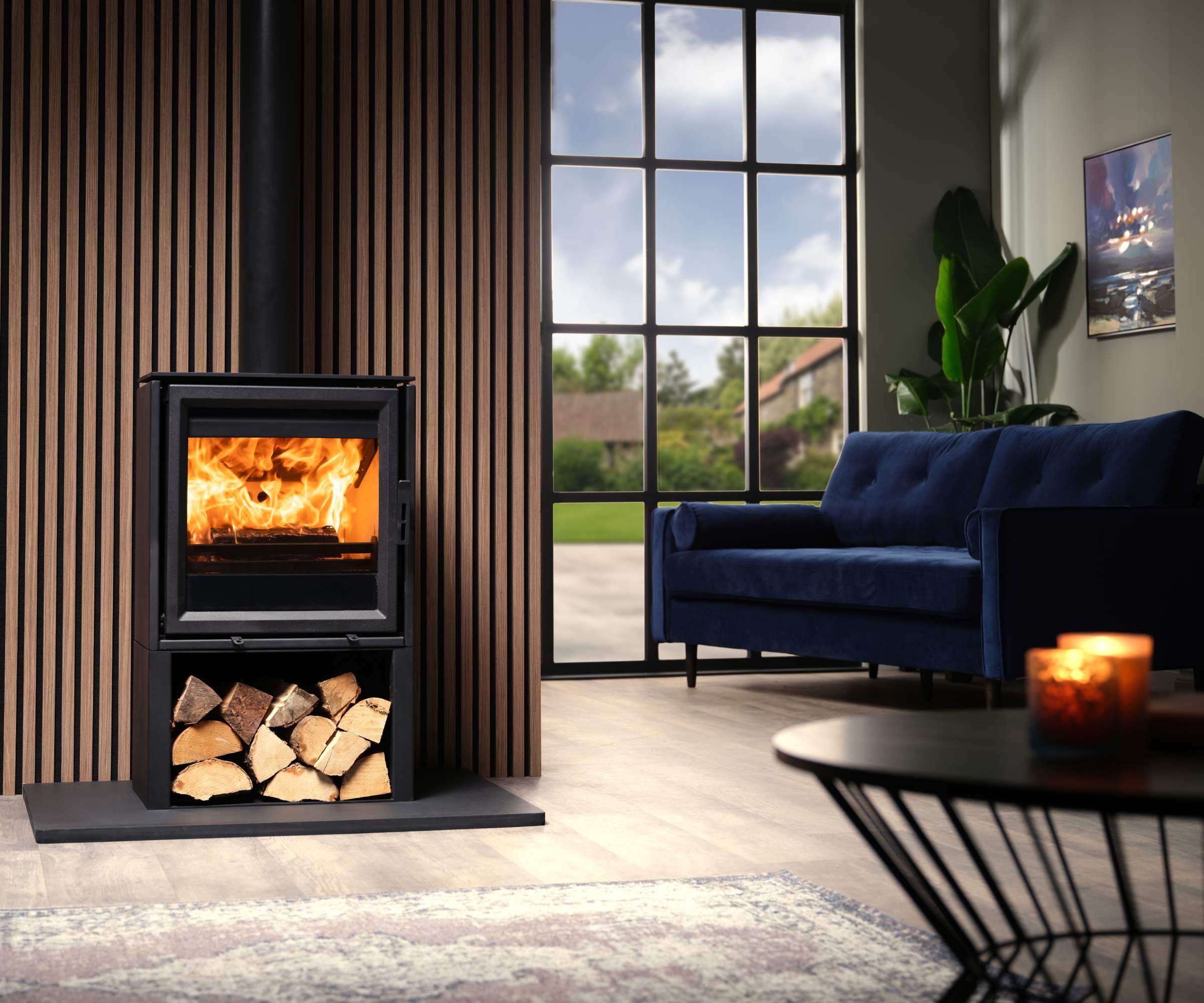Government caves in as wood burning stoves allowed in Future Homes Standard, despite health warnings
Despite the government's own expert advisor's warning about the health issues associated with wood burning stoves new homes will be allowed to install them

The UK government has confirmed that modern wood-burning stoves will be permitted as secondary heating sources in new and self build homes under the forthcoming Future Homes Standard.
The Ministry of Housing confirmed in a letter: “Under the standards proposed in the consultation, a wood burning stove would be permitted as a secondary heating source in new homes.”
The decision comes after sustained lobbying from the stove industry, despite mounting concerns from health experts, climate scientists and campaign groups who argue it contradicts efforts to reduce air pollution and carbon emissions.
Industry applauds government's decision
The Stove Industry Association hailed the government’s move after lobbying alongside more than 1,500 businesses, including manufacturers, installers, and woodland owners.
Despite the problems associated with wood burning stoves their campaign emphasised the role of stoves in off-grid energy resilience, rural job creation and “renewable” fuel use.
Andy Hill, SIA chair, said: “We are delighted that it has been officially confirmed that under the proposed Future Homes Standard, the installation of a wood burning stove will be permitted.”

Government goes against its own committee's advice
Health professionals and environmental groups have expressed serious concerns about the decision.
Get the Homebuilding & Renovating Newsletter
Bring your dream home to life with expert advice, how to guides and design inspiration. Sign up for our newsletter and get two free tickets to a Homebuilding & Renovating Show near you.
Wood burning stoves are one of the largest sources of PM2.5, tiny airborne particles linked to a growing list of health problems including heart disease, cancer, diabetes, cognitive decline and premature birth.
England’s Chief Medical Officer, Professor Chris Whitty, highlighted that even modern "eco-design" stoves emit significantly more pollutants than gas heating systems.
The government's own Climate Change Committee has also called for an eventual phase-out of wood burning stoves due to their emissions with studies showing stoves emit 450 times more toxic air pollution than gas heating systems.
Jemima Hartshorn, co-founder of Mums for Lungs, commented: “This is a very disappointing and surprising decision by government. We know that wood burning is one of the major sources of toxic air pollution that is killing tens of thousands of people every year and is linked to a range of serious and life-changing diseases.”
Is the Future Homes Standard being watered down?
The Future Homes Standard, set to be introduced in 2025, is intended to make all new homes “zero carbon ready”, meaning they won’t require retrofitting as the energy grid decarbonises.
But recent developments have raised concerns the policy is being watered down under pressure from developers.
Last week, it emerged that Labour is considering making solar panels optional in new homes that are not considered "suitable", after the government's Sunshine Bill was rejected, another potential reversal in the government's sustainability ambitions. Campaigners say allowing wood-burning stoves follows the same troubling pattern of climate compromises.
“With so much evidence about their harm, this decision sends the wrong signal,” said Hartshorn. “We need bold action - not more pollution inside and outside our homes.”

News Editor Joseph has previously written for Today’s Media and Chambers & Partners, focusing on news for conveyancers and industry professionals. Joseph has just started his own self build project, building his own home on his family’s farm with planning permission for a timber frame, three-bedroom house in a one-acre field. The foundation work has already begun and he hopes to have the home built in the next year. Prior to this he renovated his family's home as well as doing several DIY projects, including installing a shower, building sheds, and livestock fences and shelters for the farm’s animals. Outside of homebuilding, Joseph loves rugby and has written for Rugby World, the world’s largest rugby magazine.
